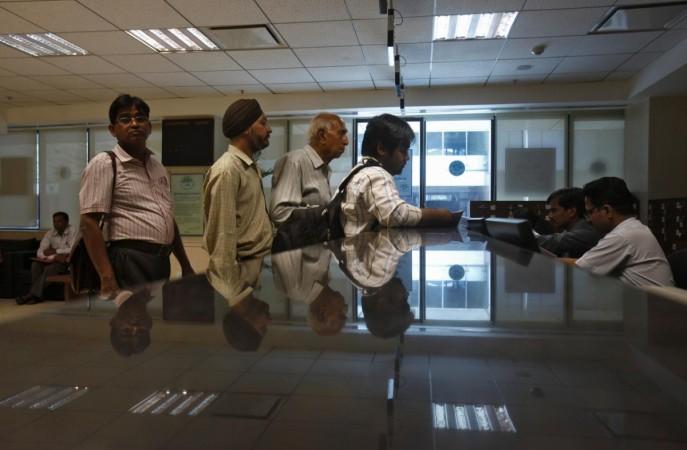
A massive shortfall in corporate tax collection in October may affect the government's ability to spend on developmental programmes, media reports suggest. The collection of direct taxes including the personal income tax the corporate taxes has fallen by 17% in October year on year, which some suggest is because of the cut in corporate tax rates that Finance Minister Nirmala Sitharaman introduced to boost the economy and capital inflow.
It can't be assessed as to how much of the slowdown is because of the rate cut, but tax-relief measures do have a role in this."
The Central Board of Direct Taxes (CBDT) collected only Rs 50,715 crore in October 2019 down from Rs 61,475 crore in October 2018, a report on the Business Standard website says. Minister of State for Finance Anurag Thakur told Parliament on Monday that the government collected Rs 5.18 lakh crore (gross collection minus refunds). by way of direct taxes in the seven months from April to October this year.
The corresponding seven-month collection figure for 2018 was Rs 5.07 lakh crore, according to data from the Controller General of Accounts, marking a 4.7 per cent increase for the period year on year. However, the collection slowed in October. Tax collection growth that depends on the economy's nominal growth had slumped to a 17-year low in the first quarter of the financial year (2019-20).
Lower collection
The drastic fall means the government will have to accelerate the divestment calendar. The government has set a March deadline for the sale of national carrier Air India, and public sector oil refiner and marketing company Bharat Petroleum Corporation Ltd (BPCL). The government pins much hope on the sale of these two companies as it is still lagging in its divestment target of Rs 1 lakh crore in this financial year.

Government officials said a reason in part for the slow collection was the corporate tax cut although some financial experts said the tax cuts' impact could not have figured in collections as most companies were yet to decide their choice. The government's overall revenue mobilisation may suffer because of the lower collection of direct taxes.
The slowing direct tax collection is likely to affect the revised estimates of Prime Minister Narendra Modi's government scheduled to be presented in the Budget for 2020-21 in February. "It can't be assessed as to how much of the slowdown is because of the rate cut, but tax-relief measures do have a role in this," the report said quoting an anonymous senior government official.
The government reduced the corporation tax rates for existing and newly incorporated companies to 25 per cent and 15 per cent, respectively, in late September, after the September 15 deadline for advance tax payment was over, the report says. Amit Singhania, tax partner at Shardul Amarchand Mangaldas said it was unlikely that the shortfall was an effect of the tax cuts, as the advance tax for October-December quarter would be paid only closer to the December 15 deadline.
"The deadline for self-assessment tax for FY19 was extended to October 31. The October collection would include this, in addition to the TDS (tax deducted at source) which is collected monthly," the report quoted him as saying.

















